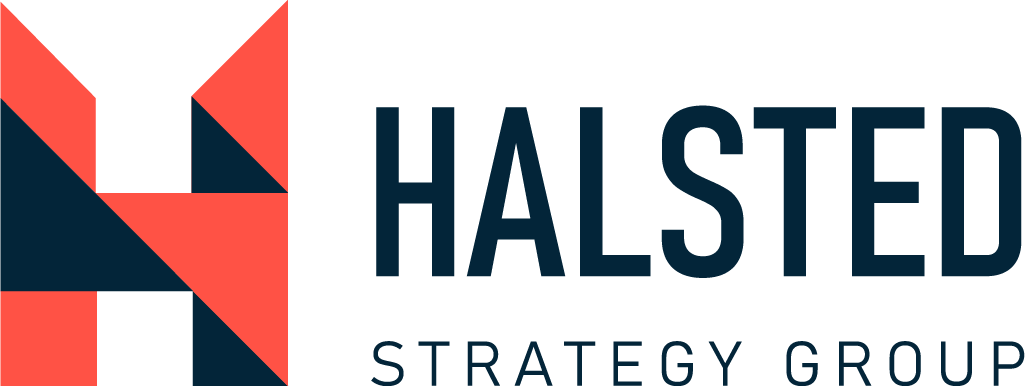We Have
Answers
Best-in-class research trusted by the world's leading brands.
Kodiak Cakes
Assessing brand strength within the protein category, and likelihood of confusion with a similar mark.
Grove Collaborative
Leveraging segments in a holistic growth strategy.
Vans
Assessing commercial impression of a disputed USPTO mark.
Bombardier
Assessing confusion for the Defender mark.
Eight Sleep
Validating a truly innovative consumer concept.
Chanel
Understanding material differences and affiliation for an iconic brand in the secondary market.
Nerdy
Tracking a market through a pandemic.
Petal
Tracking brand shifts through product evolution.
We know our stuff.
All projects are designed for you, leveraging leading consumer panels and research platforms, for results you can trust.
Affiliations

Grow Your Brand
-
Brand Tracking
Tracking brand performance is paramount to understand market impact. Through a nimble platform to measure your performance, we provide a snapshot of brand effectiveness and a plan for what to do next.
By monitoring KPIs, including overall brand awareness, we focus on understanding what drives business impact and how it aligns with your internal strategy. Through a real-time dashboard, you can always keep your finger on the pulse of the market, and understand opportunity.
Find out more about Brand Tracking here.
-
Segmentation
A successful segmentation highlights your most valuable customers, re-imagines how you can transform your brand to cater to them, and provides an easy way to find them.
By starting with this end in mind, we craft an effective segmentation leveraging best-in-class analytics that drive real marketing.
Find out more about segmentation here.
-
Journey Mapping
Understanding the funnel is critical, but it’s a journey map fully-equipped with customer data by touchpoint, behavioral stages, and sentiment that will eliminate the guesswork with what motivates customers to grow with your brand. Instead, uncover exact moments that help customers succeed, and allocate your efforts to encourage more of them.
-
Attitudes + Usage
If you’re curious about the state of the market today, there’s no better way to get a holistic view than a Market Attitude & Usage study. We focus on who comprises the market, their key purchasing behaviors, their rationale for buying, the latent attitudes that exist within the market, and unmet needs which can uncover white-space opportunities.
-
Brand Tradeoffs
Consumers make choices everyday. By focusing on the latent drivers of choice, we get a much clearer lens on “real world” decision making. Leveraging MaxDiff and a variety of Conjoint methodologies (CBC, ACBC), we explore simulated scenarios that encompass all the key factors of consumer choice.
By knowing what matters and what doesn’t, marketers can optimize SKU offerings, packaging, and brand appeal.
-
Concept Testing
We use concept testing to explore how consumers will react in-market, without the need for a national rollout. Used effectively, concept testing can provide a clearer vision of the consumer proposition, understand the reasons to believe, and isolate specific benefits and drawbacks of the product.
This allows for optimization prior to full launch, and can help you have a successful product in market from day one.
Learn more about concept testing.
Protect Your IP
-
Likelihood of Confusion
For trademark or trade dress, we offer surveys to determine the extent of confusion. Typically following either an Eveready or Squirt methodology, in line with established legal precedent, we seek to understand the level of confusion within the interested universe of consumers.
We have expertise in research addressing both forward confusion and reverse confusion, and use best-in-class research practices far surpassing Daubert standards to offer reports with high evidentiary weight.
Learn more about our likelihood of confusion surveys.
-
False Advertising
Often the basis of class action lawsuits, we specialize in False Advertising surveys. False advertising, either in traditional marketing or on trade dress, is often called into scrutiny for causing misleading purchases from an interested universe.
Our survey methodology seeks to understand the purchase rationale for a given product, through stated and latent tests. We isolate the claims in question to understand if they have a material impact on purchase, and if so, how much of the purchase decision is attributable to the false advertising.
Learn more about our false advertising surveys.
-
Secondary Meaning
In cases where a trademark may or may not be considered descriptive, we conduct Secondary Meaning surveys to understand the distinctiveness of the mark among an interested universe of consumers.
In line with legal precedent, our studies determine whether a trademark is associated with one or more than one company. In certain cases, we may ask the company that the mark is associated with.
-
Trademark Dilution
Given the heightened bar for fame/distinctiveness as put forth in the TDRA in 2006, we offer trademark dilution surveys to assess two critical criteria of the marks. First, we seek to understand whether a junior mark intended to create association with a senior mark. Secondly, we seek the degree of similarity between the junior and senior marks and distinctiveness of the senior mark.
While case law is not as established as in other types of trademark testing, we generally rely on blurring surveys to understand whether the mark has become associated with more than one type of good, or tarnishment surveys to understand whether the mark is dilution by association with inferior or salacious content.
Learn more about our trademark dilution surveys.
-
Trademark Damages
In order to estimate damages associated with a specific claim, feature, or mark, we prefer to utilize a variety of Conjoint methodologies (CBC, ACBC), we explore simulated scenarios that encompass all the key factors of consumer choice.
By knowing what matters and what doesn’t, we can assess the impact of an individual item on the overall choice of the consumer.
Learn more about trademark damages surveys.
-
Genericness
In cases where a trademark may have lost its distinctiveness, we conduct genericness surveys to understand the distinctiveness of the mark among an interested universe of consumers, specifically whether it is viewed as a brand name or not.
In line with legal precedent, we predominantly use either the Teflon format or Thermos format to test for genericness. In certain cases, we may ask the company that the mark is associated with.
Learn more about our trademark genericness surveys.










